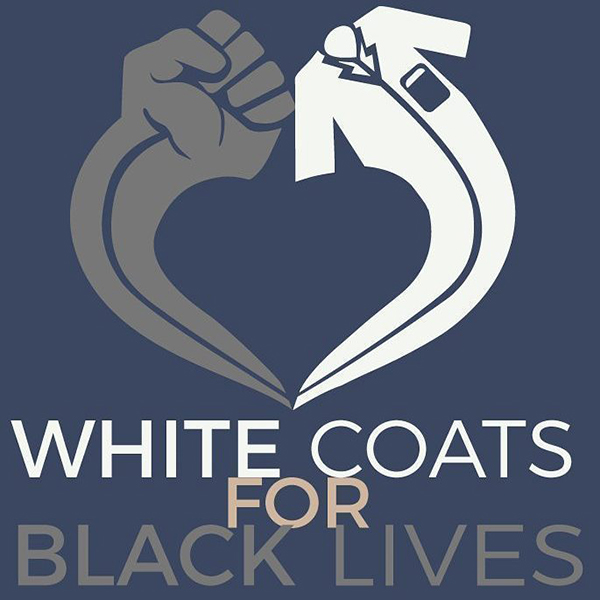
USF Health students, staff and faculty during a White Coats 4 Black Lives demonstration in June.
Earlier this year, medical students, staff and faculty watched as protests and riots began to sweep across our country in addition to the COVID-19 pandemic. In June, USF Health Morsani College of Medicine students came together and decided to form a chapter of the national White Coats 4 Black Lives and to open to all USF Health students. In August, MCOM became an official chapter of the WC4BL.
“Racism isn’t something that’s new in our society. It’s been around for a long time. Our goal here is to continue to raise the topic in conversations and do whatever we can to stop it,” said fourth-year medical student and MCOM WC4BL chapter president Tampa Hutchens. “Our job is to start the work and get it to a place where medical students can pick up where we left off and continue to push the conversation.”
White Coats 4 Black Lives is a medical student-run organization derived from the National White Coat Die-in demonstrations that took place on Dec. 10, 2014. The goal is to safeguard the lives and well-being of patients through the elimination of racism. : To accomplish this goal, the organization and the USF Health chapter looks to:
- Foster dialogue on racism as a public health concern.
- End racial discrimination in medical care
- Prepare future physicians to be advocates for racial justice.

WC4BL believe structural change does not come from power institutions. It comes from the coordinated efforts people dedicated to achieving justice. Chapters engage in the following activities:
- Education: Organization coordinate training for medical students and house staff to learn about the history of movement for racial justice, abolition, direct action and organizing, racism in medicine and racial capitalism.
- Organizing: Through the National Working group and local chapters, and in coalition with other organization for racial justice, organizations seek to fight white supremacy in medical schools, hospitals, and broader society. Tactics include but are not limited to letters, petitions, social media campaigns, media outreach and direct action.
- Public accountability: The organization seeks to hold medical schools and hospitals accountable to their local communities through the Racial Justice Report Card, which is published on an annual basis. The RJRC is also envisioned as a tool for organizing, highlighting specific policies or practices on which local chapters can focus their efforts.
MCOM WC4BL Executive Leaders:
- President: Tampa Hutchens, MCOM Class of 2022
- Vice President/SELECT Liaison: Tiffany Cheng, MCOM Class of 2021
- Treasurer: Emily Shipley, MCOM Class of 2021
- Secretary: Ellen Marin, Physician Assistant Program Class of 2021
- National Pillar Board: Prisca Alilio MCOM Class 2022
- Curriculum Director: Nina Alesna MCOM Class of 2023
- Community Outreach Director: Sam Harris MCOM Class of 2021
